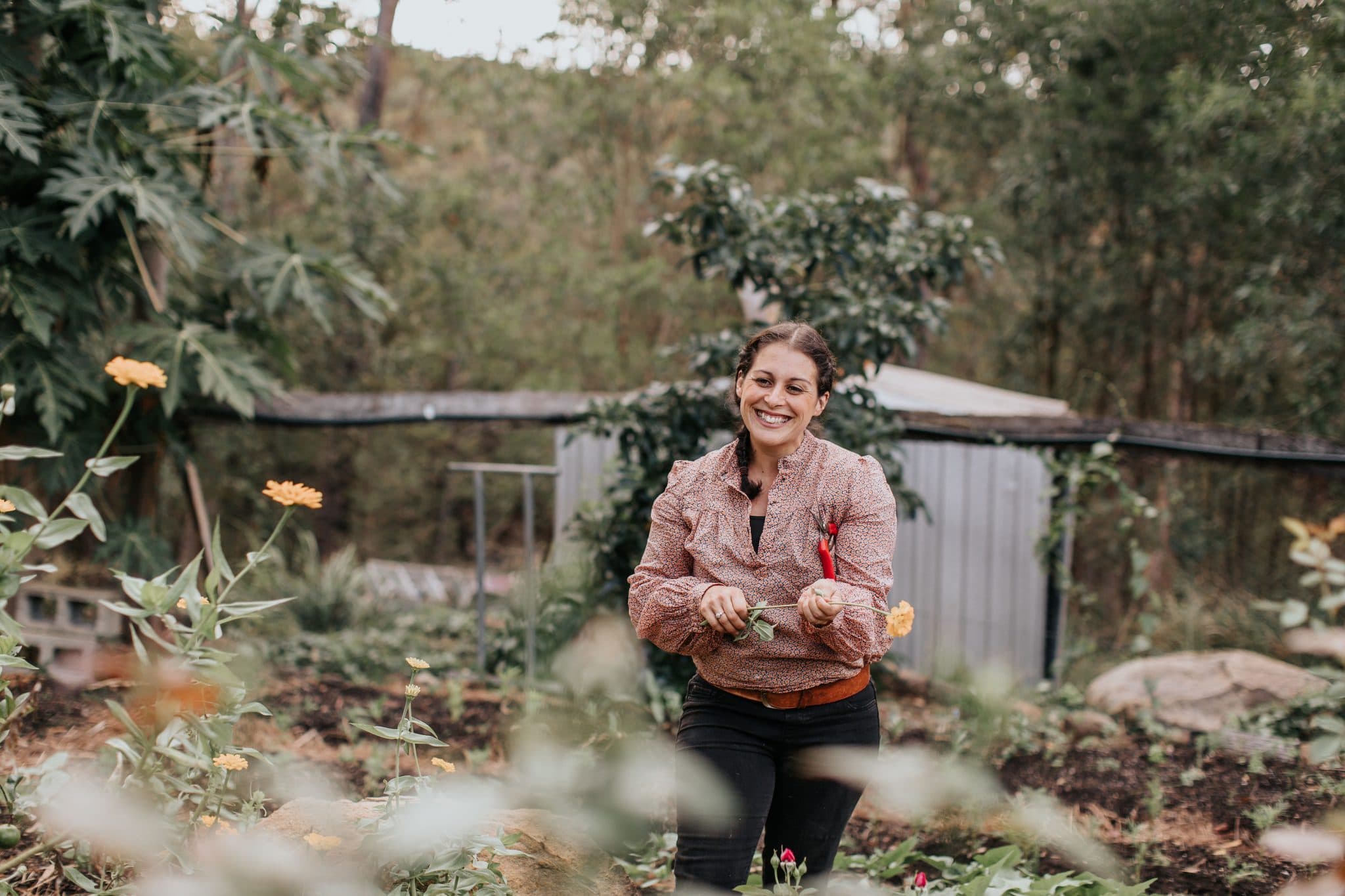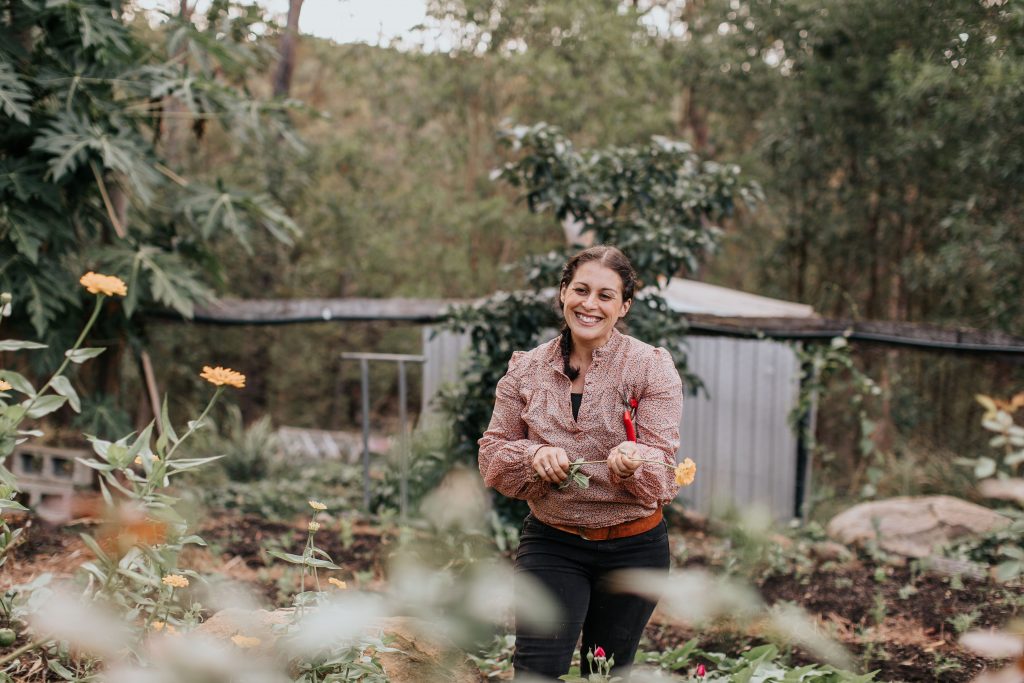Tara Luca and her husband, Alex O’Reilly, had a desire to farm. It didn’t matter what it was, they just wanted to farm. When the opportunity arose to purchase the tea tree farm down the road from their home in the NSW northern rivers region, Tara and Alex joined forces with Alex’s sister and her partner to become tea tree farmers. That’s where Olive Gap Organic Farm started, almost five years ago, and the collective haven’t looked back since.
A true family business, Olive Gap Organic Farm sells native essentials oils, mostly tea tree oil, which are grown and distilled on their farm, along with seasonal cut flowers.
Telling the Olive Gap Organic Farm provenance story
Tara describes Olive Gap Organic Farm as one of the smallest tea tree farms in Australia but uses this to their advantage.
“We are probably one of, if not the smallest, tea tree oil farms in Australia. But I think this is one of our strengths; we can show our customers the whole process from growing to the final product. People are able to get to know us, our story and our product,” said Tara.
Olive Gap Organic Farm use provenance storytelling to document their business – from planting, to harvesting to distilling – bring their customers along the journey when creating their tea tree oil products. Sharing their story has helped to build consumer trust and brand authenticity.
According to AgriFutures Rural Futures Senior Manager, Jen Medway, these are key components of successful provenance storytelling.
“We wanted to put producers front and centre when creating the Provenance Toolkit. The tools and templates in the kit are designed to guide them to develop their own provenance story so they can better connect with their customers.”
“We know that consumers are becoming increasingly conscious of where and how their food and fibre is produced. While provenance and storytelling has long been the realm of small and boutique businesses, it is becoming increasingly important for larger farm businesses. It’s about creating meaningful connections with customers and finding ways to share the values driving production processes,” said Ms Medway.
The cornerstone of building provenance and being able to communicate stories to customers in unique and impactful ways, is that producers can build trust and authenticity – essential ingredients to achieving cut through in a crowded marketplace.
Tara is passionate about seeing and showing consumers Olive Gap Organic Farm’s from “paddock to bottle” story.
“We love, and so do our customers, that we can see and show them the product from the field through to how people are using them at home.”
“Our ideal customer is someone who wants to be able to trust the brands they use; we use our stories to build that level of trust that both we and our customers desire.”
To further expand on that customer relationship and trust, Olive Gap Organic Farm have re-focused their sales strategies toward a direct-to-customer strategy.
“We have been selling direct to the customer as much as possible over the last 12 months. This helps us build a close relationship with our customers and it’s something we really enjoy being able to do,” said Tara.










